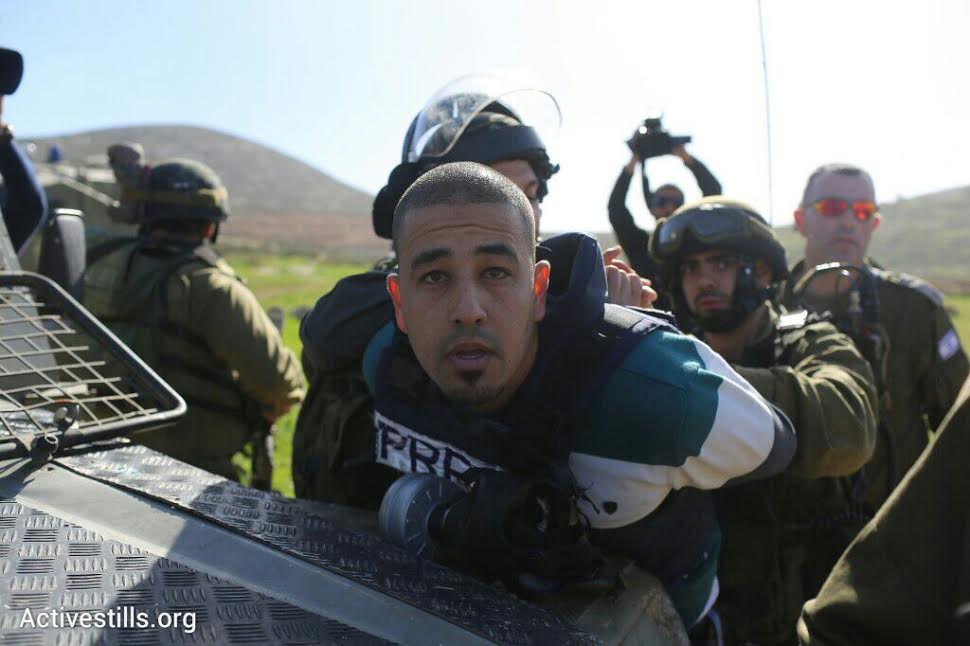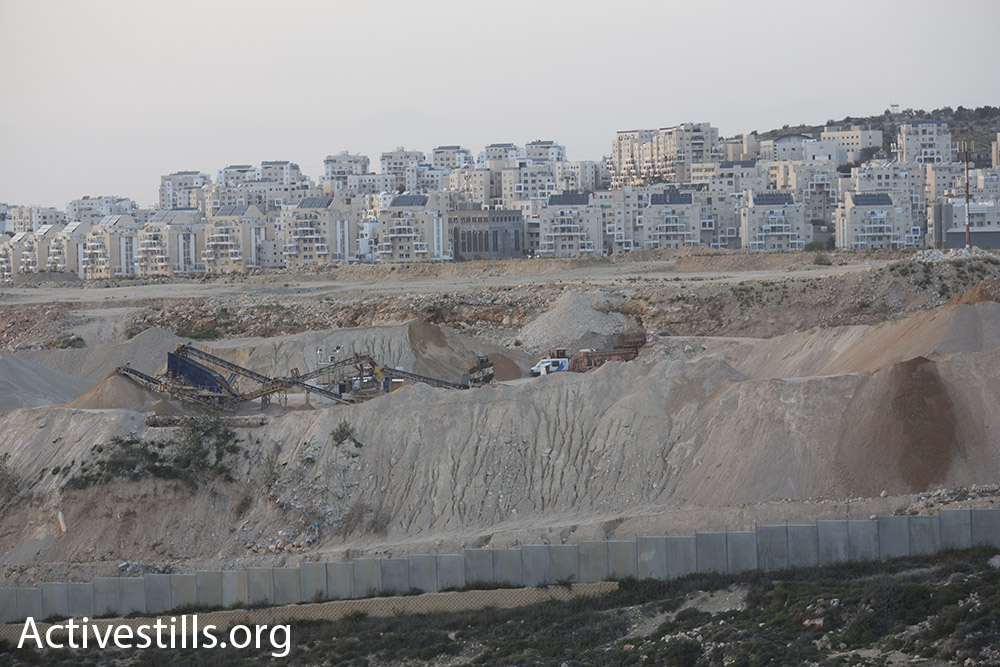Those familiar with the system know that as long as settlement construction continues, the abuse and intimidation of the Palestinian civilian population will be maintained.
By Gerard Horton

UNICEF, the UN body tasked with providing humanitarian aid to children in developing countries, recently issued an update on the progress made regarding the treatment of minors held in Israeli military detention. In its 2013 report, Children in Israeli Military Detention, UNICEF reviewed over 400 sworn testimonies collected from minors who came in contact with Israel’s military system, and concluded that ill-treatment “appears to be widespread, systematic and institutionalized throughout the process,” and made 38 recommendations for improvement. Two years on, UNICEF is now warning that “reports of alleged ill-treatment of children during arrest, transfer, interrogation and detention have not significantly decreased in 2013 and 2014.”
Based on new evidence, UNICEF’s 2015 update found, among other things, that 91 percent of minors continue to report having their hands painfully tied; 82 percent report some form of physical violence; 78 percent are not adequately informed of their legal rights; 30 percent sign confessions in a foreign language; and 13 percent are held in solitary confinement while being interrogated.
But does any of this come as a surprise to those familiar with the system? Unfortunately, the answer is no. Last June marked 47 years since the Israeli military imposed martial law on the Palestinian civilian population in the West Bank. The UN estimates that, since then, over 750,000 Palestinian men, women and children have been detained — and in many cases prosecuted — in military courts that have jurisdiction over individuals as young as 12. The types of offenses prosecuted in these military courts range from acts of violence and membership in banned organizations to attending unauthorized protests — the latter of which carries a maximum penalty of 10 years imprisonment.
In order to understand how this system has remained in place for so long, one needs to consider the role it plays in maintaining control over the Palestinian civilian population in the West Bank, and why such control is so important to the military. The answer to this question must be considered in light of Israel’s continued settlement activity (the latest estimates indicate that the number of Israelis living in East Jerusalem and the West Bank is fast approaching 600,000). Whilst there is no serious dispute as to the legal status of these settlements, they do pose a major security challenge for Israel’s military. Consider this: how can any military guarantee the protection of over half-a-million civilians who are encouraged to roam around a conflict zone by the civilian authorities?
The way this unenviable military objective is achieved is simple and effective: through mass intimidation and collective punishment. The evidence to support this claim can be illustrated with regard to the manner in which Palestinian children in the West Bank are detained by the army and prosecuted in military courts.
According to the military authorities, 1,004 Palestinian children were detained in the West Bank in 2013. The most common allegation against these children is that they throw stones at soldiers or vehicles carrying settlers. Left unchecked this situation could quickly spiral out of control. The military response is to subject Palestinian communities closest to these incidents to intense military suppression, including day and night raids, as well as to arrest operations.
The military strategy employed is both reactive and proactive. In its reactive form, any and all acts of resistance are responded to with overwhelming force as a means of deterrence. In its proactive form, the military demonstrates its presence in Palestinian villages in order to intimidate the local population so that resistance is not even contemplated. These strategies have been well attested to by former soldiers who have provided video testimonies to the Israeli organization Breaking the Silence. In these testimonies, soldiers describe entering villages at night and firing stun grenades for no other reason than to “demonstrate presence”; entering houses at 3:00 a.m. in order to photograph residents; and ransacking houses in the middle of the night without any prior intelligence that could justify such actions.
In order for this strategy to succeed, all contact between Palestinians and the military must be unpleasant. This form of mass intimidation is what led UNICEF to conclude in 2013 that the ill-treatment of children appears to be “widespread, systematic and institutionalized,” and confirm that nothing has changed in 2015. UNICEF’s report went on to add that “this conclusion is based on the repeated allegations about such treatment over the past 10 years and the volume, consistency and persistence of these allegations.”

The effect of mass arrests and intimidation of Palestinian villages cannot be underestimated. The Women’s Center for Legal Aid and Counseling (WCLAC) documents cases in which women give testimonies about the terror they experience every time the military enters their village. Ultimately, the strategy is largely successful, with whole communities shutting themselves in out of fear of encountering the military. Another measurement of this strategy’s success can be found in a report published by the U.S. State Department, which noted that in 2012, zero out of approximately 350,000 Israeli civilians living in the West Bank were killed. This is truly an extraordinary military achievement, but one that comes at a huge price for the Palestinian civilians unlucky enough to have had a settlement built next door.
UNICEF’s recent update also highlights a number of legislative and procedural changes that have occurred in relation to the detention of children by the Israeli military over the last two years, and refers to an ongoing dialogue process with the military authorities. However, those familiar with the system know that as long as settlement construction continues, the abuse and intimidation of the Palestinian civilian population will be maintained. Simply put, there never has been, nor will be, a nice way of building settlements in occupied territory.
Gerard Horton is a lawyer and co-founder of Military Court Watch. Gerard has worked on the issue of children prosecuted in the Israeli military courts for the past seven years and is the author of a number of leading reports on the subject.


